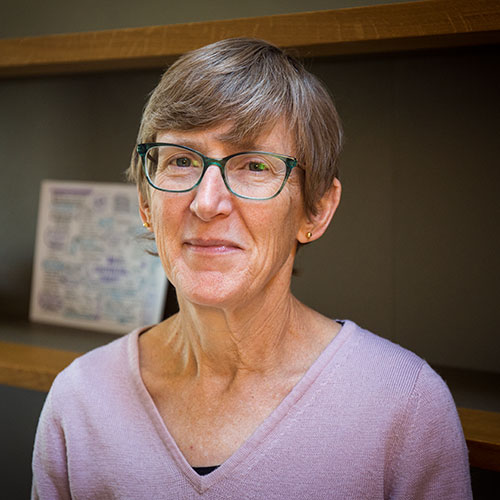
Professor Clayton discusses climate change’s effects on mental health on NPR podcast

Susan Clayton, Whitmore-Williams Professor of Psychology at The College of Wooster, was recently featured on the podcast The Sound of Ideas, produced by Ideastream Public Media and syndicated by NPR, where she discussed her work on how climate change impacts mental health, known as “eco-anxiety,” a term that Clayton coined in 2011.
In the podcast, Clayton discussed the emotional aspect of climate change, something that has only recently received significant media attention, and it does not affect everyone equally. People who live in areas more directly affected by climate change and young people, for example, tend to express the most anxiety because of the effects that climate change has or will have on their lives.
But climate anxiety is doing more than causing poor mental health, Clayton says. It is actively factoring into people’s decisions about their futures, such as whether they want to have children. As Clayton explained, “Couples have this conversation about whether it makes sense to have children. And just that idea that they can’t envision what the future might look like for their children is a real deterrent for some people.”
In a survey that Clayton conducted recently, with over 1000 participants, 70% of young people said the future was frightening, and about 45% said that they would have fewer opportunities than their parents, and a similar number said, “in fact, they thought humanity was doomed.” But the podcast also discussed ways to combat this anxiety and use these feelings to create change in the world. According to Clayton, one of the main drivers of eco-anxiety is the feeling of being alone, or that “you are worried, and that other people are not worried.” So, if the anxiety is interfering with one’s daily life, she recommends many coping mechanisms that are used for other kinds of stress, like “stepping away from the problems, stop looking at the news, go outside, take for a walk, maybe engage in some mindful breathing techniques to feel more in control of your emotions.”
One of the most useful responses to eco-anxiety, Clayton told The Sound of Ideas, is to simply engage with others and realize that many people are experiencing the same emotions. “One of the useful responses to that is to assure people that they’re not alone,” Clayton explained. “Providing people with a sense of community and working together to address climate change can help some people cope with their emotional responses.”
The Sound of Ideas is Ideastream Public Media’s weekday morning news and information program, focusing on Northeast Ohio. Produced by Drew Mazsiaz and hosted by Rick Jackson, the episode featured Clayton alongside Shannon Osaka, Climate Zeitgeist Reporter at The Washington Post.
Posted in News on May 24, 2023.
Related Posts
Related Areas of Study
Psychology
Do research, work with faculty mentors, and tailor a psychology program to your interests
Major MinorEnvironmental Studies
Natural sciences, social sciences, and humanities courses combine for those who want to be part of environmental solutions
Major Minor

